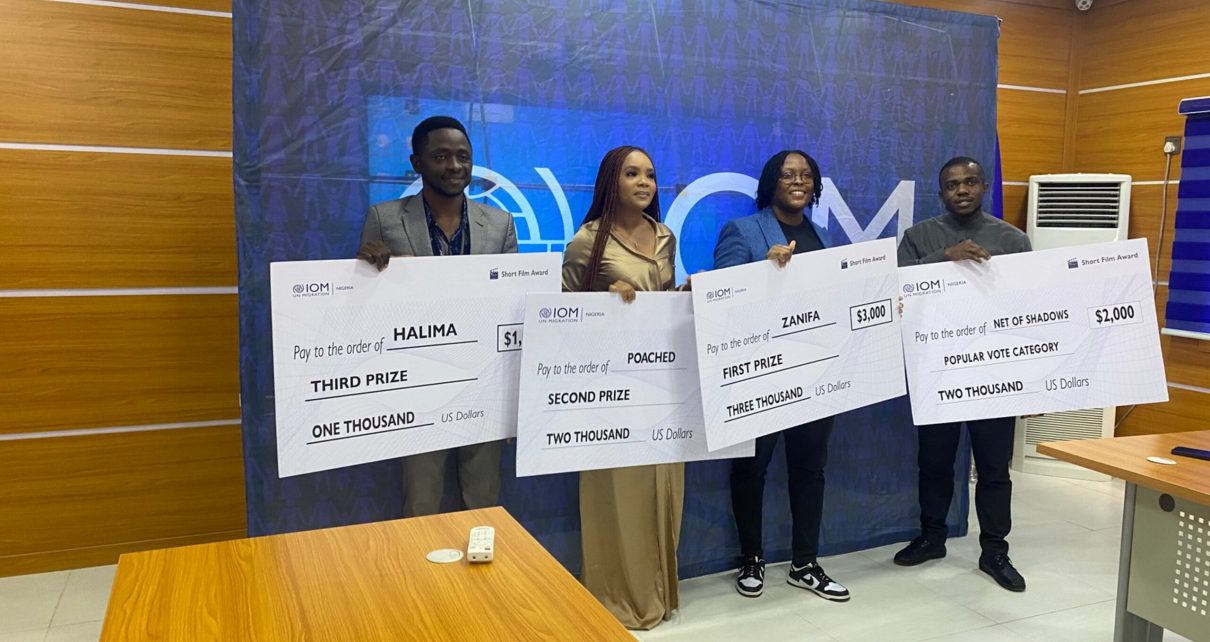Mr. Laurent De Boeck, Chief of Mission at the International Organisation for Migration (IOM) Nigeria, has called upon filmmakers to consistently place creativity at the forefront of their efforts to combat human trafficking.
Speaking at the conclusion of IOM Nigeria’s 2023 Short Film Contest on ‘Combating Human Trafficking’ in Abuja on Monday, De Boeck emphasised that prioritising creativity would lead to meaningful progress.
De Boeck praised films as a medium capable of showcasing untold stories that can inspire, educate, encourage dialogue, and foster empathy among the public in the fight against human trafficking.
He noted that films have proven to be catalysts for guiding people, even in intricate situations like human trafficking and migrant smuggling.
De Boeck stated, “As we honour the winners of this contest, we acknowledge that their impact goes far beyond the screen. These films possess the potential to educate, inform, and rally action.”
He commended the dedication of the jury members for their meticulous evaluation process to determine the winning entry. Their commitment to combat human trafficking serves as a beacon of hope, highlighting their role as voices for change.
De Boeck highlighted the power of creativity to shape perceptions, challenge norms, and inspire action. By sharing their stories, filmmakers contribute to a world where trafficking is not merely a headline but a challenge that demands collective attention.
He explained that the choice of a short film contest as a means to combat trafficking is to more effectively engage the youth, who are particularly vulnerable. Such engagement allows young people to channel their creativity into efforts to dismantle criminal networks profiting from innocent lives’ exploitation and create a world where no one is left behind.
The submitted short films are not just entertainment, but windows into survivors’ experiences, the struggles of anti-trafficking advocates, and the resilience of communities uniting to build a safer world.
De Boeck celebrated the filmmakers’ dedication, empathy, and unwavering commitment to addressing human trafficking as a severe violation of human rights affecting millions globally, including Nigeria.
In the face of this challenge, he found inspiration in the power of art and storytelling, applauding filmmakers who employed their creativity and vision to shed light on trafficking, provoke thought, and spark conversations driving real change.
He underlined the necessity of intensifying awareness efforts about the ever-evolving tactics used by traffickers, who target vulnerable groups such as migrants, refugees, asylum-seekers, internally displaced persons, and survivors of gender-based violence.
De Boeck noted that the submitted short films were not just entertainment; they reflected survivors’ experiences, the battles of anti-trafficking advocates, and the resilience of communities united to build a safer world.
He mentioned that a committee of experts in migration, counter-trafficking, film, and media from IOM reviewed the contest entries. Four winners emerged from two categories: official and popular vote.
Letitia Osita-Obasi, the Producer of “Zanifa,” secured the First Prize, while Adeola Peregrino, Producer of “Poached,” claimed the Second Prize.
Kings Shamaki, Producer of “Halima” and Photographer, took the third position. Efunshinle Akinwunmi, Producer of “Net of Shadows,” and cinematographer, won the popular vote category.
The event’s highlights included speeches by Ms. Anne Abok, International-Director of MeCHAT, and Mr. Oliver Stolpe, Representative of UNODC.


